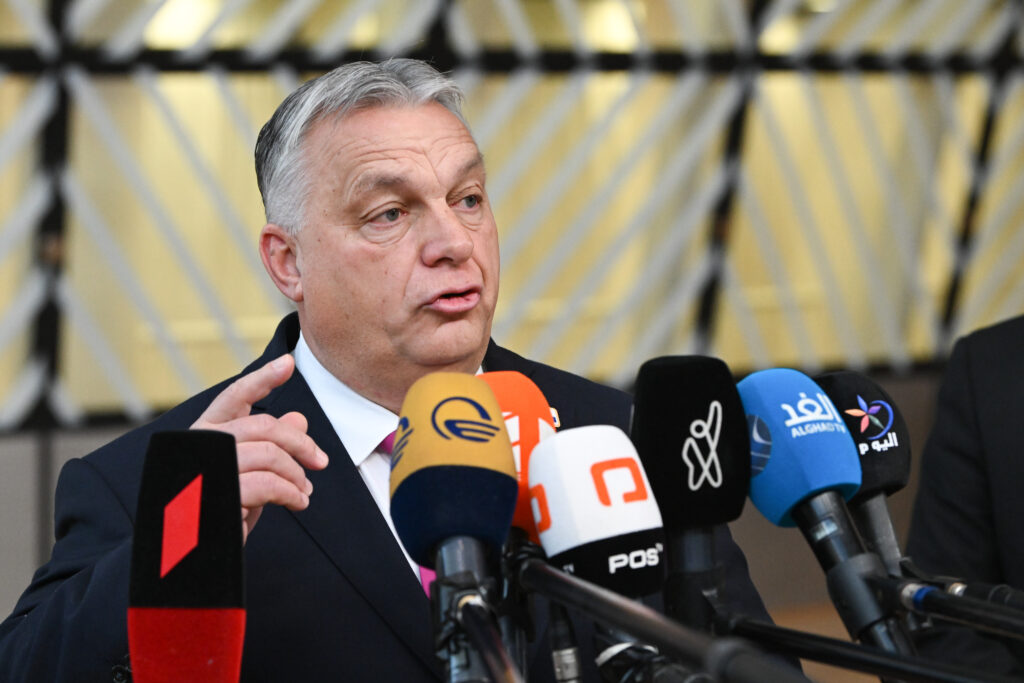Brussels – As Russia continues to bomb Ukraine, the EU has yet to find a solution to imposing new sanctions on Moscow, while support for Kyiv still proceeds in hiccups. The chancelleries are working on the 17th package of restrictive measures, which could be ready next month. However, the biggest difficulties still lie in using proceeds from the frozen Russian capitals.
At least 34 dead and more than 110 wounded is the toll of the latest Russian attack on the Ukrainian town of Sumy, not far from the border with the Federation, conducted yesterday (April 13) while the citizenry was gathered to celebrate Palm Sunday, just a couple of days after the visit to Moscow of the White House special envoy, Steve Witkoff. Yet another civilian massacre increased political pressure on the foreign ministers of the Twenty-Seven, meeting in Luxembourg this morning, but it was not enough to make a decisive breakthrough. Kaja Kallas herself stressed that the 17th package of sanctions against Moscow is still being prepared and will not be finalised until next month.
Sanctions and frozen assets
“All member states want peace, and all support the ceasefire” accepted by the former Soviet republic almost a month ago, said the High Representative (on her first mission to the Grand Duchy). But the bombing of Sumy “shows that the Russians do not want peace,” and therefore, “the only way to bring Russia to negotiate is to increase pressure.” The latest round of restrictive measures against Russia was approved last February on the third anniversary of the 2022 large-scale invasion of Ukraine.
“We are working on imposing sanctions on oil and gas,” the former Estonian premier added, hoping for “the strongest possible package.” This time, ships of the Federation’s so-called“shadow fleet” (used so far to circumvent already existing sanctions) and liquefied natural gas (LNG) imports, as well as the state-owned atomic company Rosatom, could also be caught in the meshes of sanctions. These, at least, would be the desiderata of the Baltics and Scandinavians, Ukraine’s most vocal supporters and Russia’s fiercest detractors.
Once packaged, in any case, the new restrictive measures will have to pass through the Caudine Forks of unanimity among the chancelleries. Which, in practical terms, means exposing them to the veto of Hungarian Prime Minister Viktor Orbán, the Kremlin’s Trojan horse within the EU that always went sideways regarding support for Kyiv, so much so that Lithuanian Minister Kęstutis Budrys spoke of “a humiliation for all those who are diplomatically working to stop this war.”

An even thornier issue is using the extra-profits generated by the interest from Russian capital frozen in the Union’s jurisdiction (a treasure trove that amounts to something like €210 billion) to finance Ukrainian resistance and the future reconstruction of the attacked country. Swedish minister Maria Palmer Stenergard, for example, would like to go so far as to sequester the same frozen assets.
The matter is politically and legally complex and has been discussed in the EU for quite some time. Still, the issue has gained new urgency since Donald Trump returned to the White House, given the prospect of a star-studded tap shutdown and the relief of sanctions on Moscow hinted recently by the New York tycoon.
Military Aids
On the table of foreign ministers was also the military aid to Kyiv. “We discussed the expansion of missions already underway,” explained the 12-star diplomacy chief, but also that “reassurance force” that the coalition of the willing is working on under the Franco-British aegis. In financial terms, Kallas noted, “this year the member states have already contributed more than €23 billion,” a figure higher than that of the Twenty-Seven in 2024 (about 20 billion).
To date, she announced, approximately two-thirds of the 2 million projectiles (with a total value of 5 billion) promised to Ukraine by member states in what remains of the ambitious 40-billion “Kallas Plan” tanked a few weeks ago by Italy, France, and Spain, have been delivered. The High Representative hopes to get to 100 per cent “as soon as possible.”
Moreover, this morning, the news broke that the German chancellor in pectore, the conservative Friedrich Merz, would be inclined to send long-range Taurus missiles to the former Soviet republic, overruling the clear refusal of the outgoing Bundeskanzler Olaf Scholz and triggering the Kremlin’s response condemning yet another “dangerous escalation”.
Following yesterday’s horrific Russian attack on Sumy, I addressed the EU Foreign Affairs Council online upon @kajakallas invitation.
This weekend was Passover and Palm Sunday, and now the Holy Week begins. This should have been a time for peace, but Putin made it a time of… pic.twitter.com/2VVTXzSAPp
– Andrii Sybiha (@andrii_sybiha)
April 14, 2025
This morning, Ukrainian Foreign Minister Andrij Sybiha (remotely connected to the ongoing Council in Luxembourg) invited his EU counterparts to come to Kyiv on Europe Day, 9 May. For the past couple of years, Ukraine has brought forward celebrations of the end of World War II from May 9—the date when it was and is still celebrated in Russia—to the 8th, while the next day commemorates the Schuman Declaration of 1950 (considered the start of the EU project) as do the Twenty-Seven.
But on the point, Kallas was evasive: “I have asked all member states and Union institutions to visit Kyiv as much as possible to show our solidarity,” she told reporters in response to a question on the issue, specifying instead that “we do not want any candidate country to participate in the May 9 celebrations in Moscow.”
English version by the Translation Service of Withub








